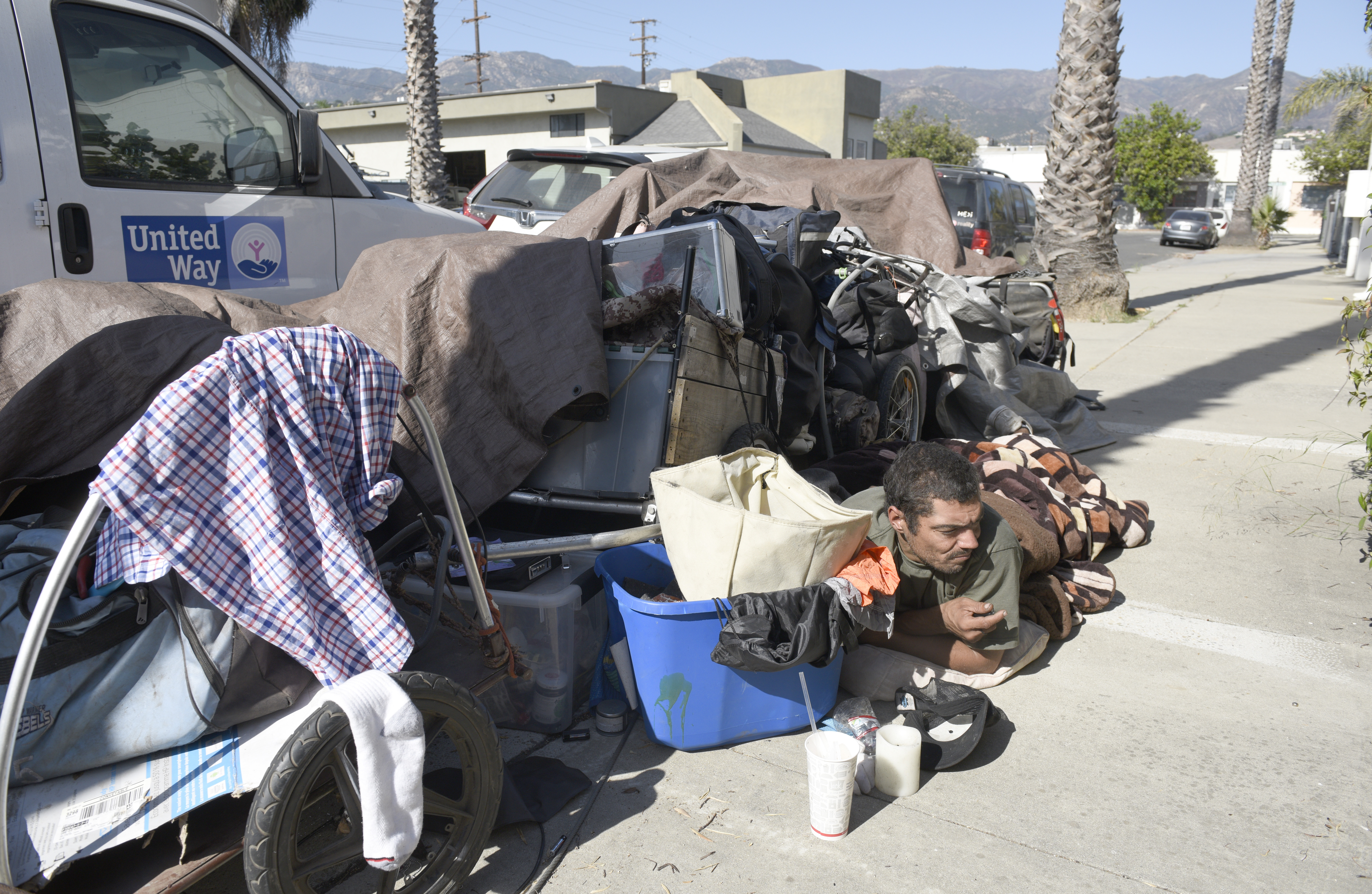Sidewalk-Sleeping Law Goes Unchallenged in Santa Barbara
City Chooses Not to Join Legal Effort to Challenge Boise Decision Limiting Ability to Penalize People for Sleeping on Public Sidewalks

While there is much gnashing of teeth by cities like Los Angeles that the U.S. Supreme Court declined to review the 9th Circuit Court of Appeal’s so-called Boise decision, the City of Santa Barbara chose not to join any legal effort challenging the ruling, which limits local governments’ ability to cite, ticket, and arrest homeless people for sleeping on public sidewalks.
“I assumed Boise was good law from the day it was published,” stated Santa Barbara City Attorney Ariel Calonne.
The Boise ruling found any local laws barring individuals from sleeping on sidewalks to be “cruel and unusual” unless there were beds available in local homeless shelters. Calonne stated that the Boise ruling, issued in 2018, followed on the heels of a similar decision — Jones v. City of Los Angeles — issued in 2006. The City of Santa Barbara, Calonne stressed, never banned sleeping on public property, just camping. Translated: Sleeping bags are okay, but tents are not. “And we do enforce,” he added.
A host of cities — many from coastal California — had petitioned the Supreme Court to revisit the Boise decision, arguing that it hampered cities from being able to maintain public health and safety. This week, the Supreme Court declined to hear, issuing no written explanation for not doing so. That dramatic nonaction has generated considerable comment from players on all sides of the homeless issue, the most obvious takeaway being the need to create more shelter and supportive housing options.



